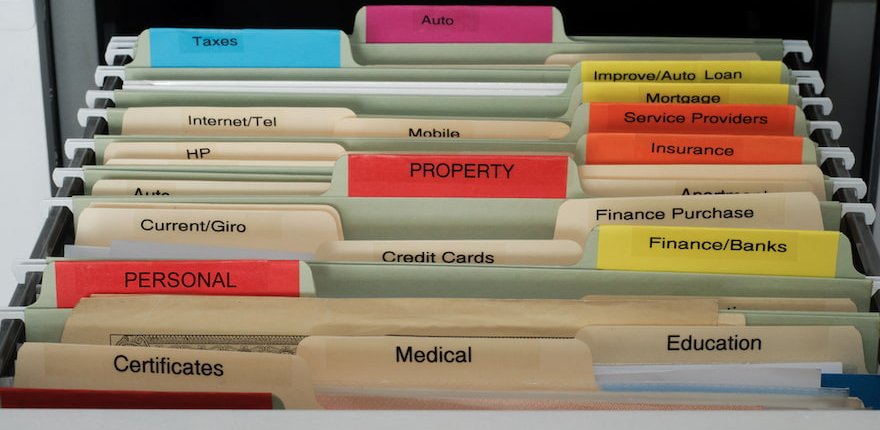We could all do with less paperwork in our lives. However, it’s wise to act with caution when tidying through your files. When it comes to essential legal forms or contracts, the question needs to be how long you should keep important documents rather than whether they should be kept at all.
Many financial, medical, or legal documents have validity over a long period of time and maybe essential for your recordkeeping over the years. The last thing you want is for essential tax records, estate planning instruments or proof of ownership forms and contracts to go missing when they are needed most.
This article looks at how long to keep documents and when they can be safely discarded. We also explain some of the best ways to store your legal forms and contracts securely so that nothing essential gets lost or damaged when you are keeping extensive records.
Most documents you receive from your bank or other service providers can normally be safely thrown out after about 30 days or less. However, for the purposes of record-keeping for a self-employed tax return you should normally store the following for about a month:
- Bank statements
- Cell phone bills
- Credit card statements
- Utility bills
Documents You Should Keep for Up to 1 Year
For your annual tax records, you will often need to keep a number of different documents, forms, and bills. Ideally, you should hold all the following records in your files until submitting your annual tax return to the IRS:
- Annual 401k statements
- Paychecks and pay stubs
- Receipts for large tax-deductible purchases
- Records of charitable donations
- Stock purchases
For Up to 7 Years or Until They Expire
A good number of legal documents and financial forms may need to be kept long term. In some cases, legal paperwork might lapse after a certain time, if an ending date has been written into the text, such as with a General Power of Attorney. If this is the case they can often be disposed of when this happens.
However, for tax purposes, the IRS often requires individuals to hold on to some supporting evidence for up to 7 years for future assessment. The important documents you should keep for a longer period of time include:
- Bank statements
- Brokerage statements
- Charitable payment receipts
- Durable Power of Attorney documents
- IRS forms W-2 and 1099
- Insurance policies (until they lapse)
- Investment records
- Previously submitted tax returns
- Sales receipts (or until their warranty expiration date)
- Tuition payment receipts
Some important forms and legal documents will need to be kept indefinitely. This is normally due to their use in essential record keeping (such as a bill of sale of a major asset, registration of birth or death, or a property deed) or because they will be necessary later in life.
This is especially the case for estate planning documents such as a Durable Power of Attorney, Last Will and Testament, or Living Will, which are usually pre-planning for future incapacity or death. The full list of important documents that must be stored forever include:
- Academic records
- Adoption papers
- Birth certificates
- Death certificates
- Divorce decree
- Driver’s license
- Durable Power of Attorney documents
- Employment contracts and records
- Marriage certificates
- Medical records
- Passports
- Retirement and pension records
- Social security cards
- Vehicle and property records (or until sold)
- Wills
Where to Keep Essential Legal Forms and Documentation
For most essential legal documents you will need a certified copy or an original. It’s important to organize your files carefully so that your most essential contracts, forms, and files can be easily found when they are needed.
If you are managing physical paperwork, it’s best to have a dedicated filing system and space where everything can be safely stored. This can be something as simple as an envelope for short term storage or a dedicated filing folder or cabinet for keeping longer-term documentation.
In either case, they should be stowed in a secure location which allows the records to stay safe and undamaged. They should also be easily accessible and locatable in case they are needed in an emergency.
Nowadays, however, it's also quite common to receive or keep digital versions of your records. You can often receive bills and bank statements electronically instead of by mail. This makes electronic filing a much more practical option for modern record-keeping.
You can also go further with this. It’s sensible to digitize all your essential paper documents so that you have a backup in case anything happens to the originals. All you need is a scanner and secure hard drive or USB stick. However, be sure to back everything up regularly just in case.
LawDistrict helps to take some of the difficulty out of record-keeping by assisting with the process of updating or personalizing essential legal contracts and documents. Try it now to create any form of your choice easily in minutes.
Find Out All Our Legal Documents


